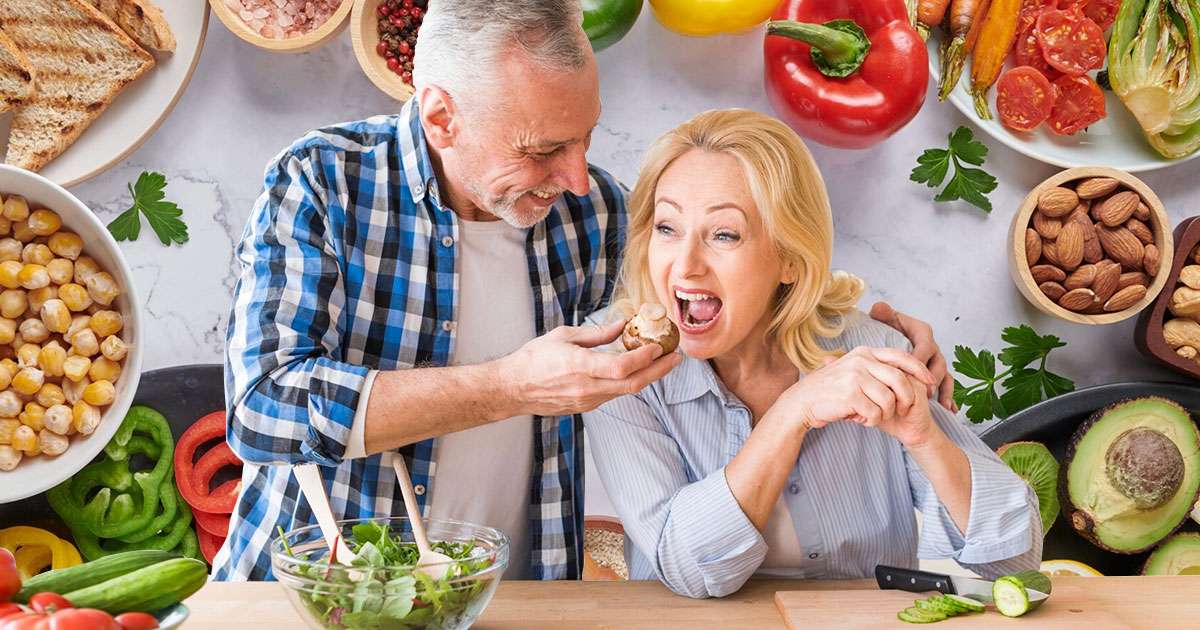Types of Foods that Can Prevent Stroke

Having a stroke can really change your life, but you can often stop it from happening by eating foods that prevent it. Things like high blood pressure, smoking, diabetes, and what you eat can affect your health in many ways. Eating healthy foods that are good for your heart can also lower your risk of having a stroke. So, what’s good for your heart is good for avoiding a stroke too.
Fruits and vegetables
Eating fruits and vegetables is a great way to stay healthy, as these are foods that prevent strokes and heart attacks. They’re low in fat and calories, but full of fiber, which makes you feel full. Plus, they have lots of good stuff like potassium, fiber, folate, vitamin A, and vitamin C.
Foods with potassium, like potatoes, bananas, tomatoes, prunes, melon, and soybeans, are good for a stroke patient, and they can help keep your blood pressure in check, which lowers your risk of having a stroke. Foods with magnesium, like spinach, also lower your risk of stroke. Eating four to five servings of fruits and veggies every day can help prevent strokes, keep your heart strong, and help you maintain a healthy weight.
Fish
Another food that can prevent a stroke is fish. Salmon, albacore tuna, trout, and mackerel have something called omega-3 fatty acids, which are good for your body. They help control your blood pressure and cholesterol. Eating fish often might even lower your chances of having a stroke, according to scientists. Omega-3s are special fats in oily fish. Having two to three servings of salmon or herring every week can help your heart and reduce the risk of a stroke.
Low-fat dairy
Cheese, milk, yogurt, and other dairy foods provide calcium, protein, vitamin D, and potassium. But full-fat dairy also has saturated fat and cholesterol, which might make heart disease and stroke more likely. Instead, choose low-fat or fat-free milk, yogurt, and cheese. These still have healthy nutrients that can keep your heart healthy and lower your risk of heart disease, diabetes, and high blood pressure—things that can lead to a stroke.
Generally, if you eat foods good for your heart, it can help prevent a stroke. Also, staying active and keeping a healthy weight is easier when you eat well, and that can also lower your risk of having a stroke.
Whole grains
Next time you go shopping, pick up whole grain bread instead of white bread. When grains are refined to make white bread, English muffins, and white rice, they lose a lot of their good stuff. That’s why it’s better to choose whole grain bread, cereal, oatmeal, and brown rice. Whole grains have lots of fiber, B vitamins (like folate and thiamin), magnesium, and iron. These are all good for your heart and can lower your risk of having a stroke.
Beets and other red or purple foods
Try adding more red or purple fruits and veggies to your meals. Beets are especially good for keeping your blood pressure in check, which can help prevent strokes. Studies suggest that drinking a glass of beet juice can lower the top number in your blood pressure reading by 5 to 8 points. Plus, they’re packed with dietary nitrates, which widen your blood vessels and improve blood flow all over your body.
Other reddish or purplish foods like pomegranates, cherries, grapes, berries, and dark leafy veggies also have antioxidants called anthocyanins. These antioxidants help stop and fix damage to your cells and DNA, which can slow down aging and lower your chances of getting sick. Eating more foods with antioxidants can improve your blood pressure and reduce inflammation. Many of these foods also have fiber, which is great for lowering cholesterol.
Cinnamon
Adding cinnamon to your food is a quick and easy trick that can lower your chances of having a stroke. How does it do this? Well, cinnamon helps in many ways: it lowers your blood pressure, keeps your blood sugar levels in check, reduces inflammation, and brings down LDL, which is the “bad” cholesterol.
All of these things are important factors that can make a stroke more likely to happen. So, by sprinkling a little cinnamon on your meals, you’re giving yourself an extra layer of protection against strokes. It’s a small change that can make a big difference in your health!
Oatmeal
Oatmeal is a great choice! It’s packed with fiber, which is really good for you. Plus, it’s a special kind of fiber that can ferment, which means that when you heat it up and let it cool a bit, it starts to feed helpful bacteria in your gut. These bacteria are awesome because they grab onto cholesterol and help get rid of it from your body. So, eating oatmeal can make you less swollen, bring down your blood pressure, and lower your cholesterol levels. It’s like a triple win for your health!
Limit salt and sugar
Cutting back on salt and sugar is important for lowering your risk of stroke. For most folks, it’s best to have less than 2,300 milligrams of salt each day, and even better if you can aim for just 1,500 milligrams (that’s about two-thirds of a teaspoon). When it comes to sugar, try not to have more than 25 grams per day (that’s roughly 2 tablespoons). The less processed or added sugar, the better, because too much sugar can cause swelling in your blood vessels and brain.
Prevent Stroke by Eating Right
Keep your heart healthy and reduce your risk of stroke by making simple changes to your diet. Choose fruits, veggies, fish, and low-fat dairy. Opt for whole grains instead of refined ones. Add in some red and purple foods, like beets and berries. Sprinkle cinnamon on your meals and enjoy oatmeal for breakfast. Remember to limit your salt and sugar intake. Small adjustments can lead to big benefits for your health. Start today for a healthier tomorrow!

